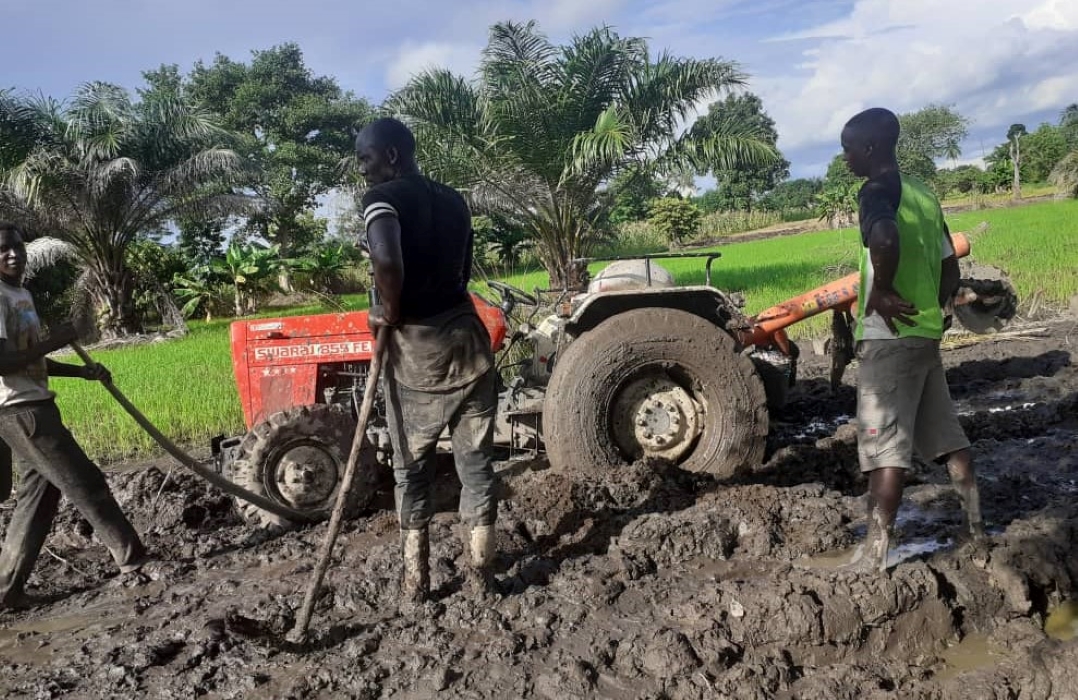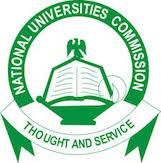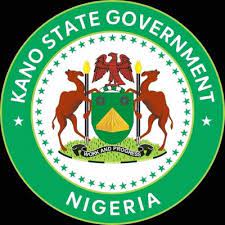NEWS
Politicians, religious leaders have diverted our farm inputs- Taraba farmers allege

From Victor Gai, Jalingo
Some farmers in Taraba State have accused politicians, religious leaders and officials of the state Ministry of Agriculture and Natural Resources of diverting farm inputs provided by the state government for distribution to farmers.
But the state government has said it was monitoring the process and has not noticed any malpractice.
As part of the state government’s efforts to boost production in the sector, Governor Darius Ishaku approved the release of N200 million for the procurement of farm inputs, including seeds and chemicals.
However, the officials who are in the position of distributing those items are allegedly diverting them to the black market with the connivance of some politicians.
The Taraba state governor, Darius Ishaku had directed that those items should be distributed to the farmers free, with special consideration to areas affected by ethnic crises.
But despite the directive, officials of the Ministry of Agriculture and Natural Resources and the politicians have diverted the commodity to the black market where a kit is sold at between N12,000 and N13,000.
According to an insider, the initiative is “a complete failure as those targeted end up buying the products instead.
“The pattern of distribution is faulty. No individual farmer accessed the items directly. Representatives of the state Assembly, state executive council and religious bodies collected them on behalf of the farmers.”
The source, who declined to be named for fear of victimisation, said the items were given to the politicians and religious leaders to deliver them to farmers in their constituencies but they ended up diverting them.
“Some politicians, religious leaders and staff of the ministry, who are vested with the responsibility of ensuring effective and transparent distribution of the commodities to real farmers, have hijacked the benefits. They either resell or give them to their close allies who in turn sell to the farmers at high rates in the state.
“And since there is no data to track the records as to how many farmers accessed the items, it is very easy to divert them.”
However, when contacted for his comment, the state Commissioner of Agriculture and Natural Resources, David Kassa, described the allegation as “untrue”.
“So far, we have not received any report of diversion and if you are aware of any case, please let me know,” he told our reporter.
Mr Kassa said the government awarded the contract for the procurement of farm inputs, which include soya beans, maize, rice and herbicides, to a contractor at the sum of N220 million.
He said the items, which came in a kit of four-in-one, were delivered to the ministry by the contractor and distributed based on the governor’s directive.
He said the governor had directed that the items be distributed to farmers across the state through divisional agricultural officers and be monitored by stakeholders, with special priority to areas affected by crises like Sukundi, Bandawa, Takum and Gassol.
He said, so far all these areas and all the local government areas in the southern part of the state have received the kits.
“Though we are already behind schedule, we have already distributed the seeds to Karim Lamido, Wukari, Ibi, Takum, Gassol and many other places. You can confirm from those areas.”
He, however, acknowledged that institutions like members of the state executive council, state assembly and religious groups like the Christian Association of Nigeria (CAN) and the Muslim council were also considered.
When asked about the mechanism put in place to ensure the items reach the target beneficiaries, the commissioner said, “we asked them to give us lists and phone numbers of all those that benefited. That is the basic information.”
Kassa said apart from requesting the information, traditional rulers and officials of the local government areas under the direct supervision of the chairpersons are also involved in the distribution process.
When asked about the delay in the distribution of fertilisers for this year’s farming season in the state, the commissioner said the removal of fertilizer subsidy and the high cost of the foreign exchange resulted in scarcity and price hike of the commodity.
He said out of the 100 trucks ordered by the state government, fewer than five trucks were received.
“We ordered for 100 trucks since last year, around this period, but till now we have not gotten up to five trucks.
“When there was subsidy, it cost us N5500 per bag. With the removal of the subsidy and high cost of exchange rate, it is now between N9000 and N10,000 at company rate.”
He said the government was waiting for the delivery of the fertiliser before reviewing how to give subsidy.
“We cannot subsidise when the commodity is yet to be delivered,” he concluded.
Meanwhile, the Taraba state farmers have complained bitterly how those items were diverted to the black market and sold to them at a high rate.
Education
UNIZIK: Students Urge FG to Implement Industrial Court Judgment, Reinstate Odoh as VC

Some students of Nnamdi Azikiwe University (UNIZIK), Awka, have called on the Federal Government to fully implement the judgment of the National Industrial Court by reinstating Professor Bernard Odoh as Vice-Chancellor of the institution.
The students, operating under the aegis of the Nigerian Students and Youth Association, UNIZIK chapter, urged the Minister of Education to act without further delay in reinstating Professor Odoh, in strict compliance with the court’s ruling.
President of the group, Chisom Nwangwu, recalled that Professor Odoh was removed from office by the Federal Ministry of Education following allegations that he was not a professor and therefore unqualified to occupy the position.
However, he said the National Industrial Court had since affirmed that Professor Odoh was duly promoted to the rank of professor in 2015 and consequently ordered that all his rights, entitlements and privileges be fully restored.
Nwangwu stressed that respect for court judgments is fundamental to nation-building and should not be treated as optional, urging Nigerians and government institutions to obey court orders if the country is to be firmly rooted in the rule of law.
He expressed concern that the continued failure to implement the court’s ruling, especially in a situation where the office of the Vice-Chancellor was neither legally nor practically vacant, sets a dangerous precedent.
“This persistent disregard for a valid court order undermines democratic values and sends the wrong signal to citizens. Such actions should not be allowed to define us as a people or as a democratic society,” Nwangwu said.
He noted that Professor Odoh is the first alumnus of Nnamdi Azikiwe University to be appointed Vice-Chancellor, describing his removal as regrettable and driven by what he termed malicious claims aimed at frustrating a young academic with a progressive vision for the development of the university.
The student leader also appealed to President Bola Tinubu to intervene in the matter, noting that his administration is anchored on the principles of justice, fairness and respect for the rule of law.
According to him, such an intervention would help reaffirm public confidence in democratic institutions and reassure young Nigerians that justice, fairness and equality before the law remain attainable in the country.
| ReplyReply allForwardAdd reaction |
Education
NUC Opens Nigeria’s University Space to Foreign Institutions

The National Universities Commission (NUC) has lifted the embargo on the establishment and operation of foreign universities in Nigeria, a move aimed at attracting foreign direct investment and boosting the global competitiveness of the country’s higher education system.
The Executive Secretary of the NUC, Professor Abdullahi Yusufu Ribadu, announced the decision at the weekend during the 10th convocation ceremony of Gregory University, Uturu, Abia State.
He said the policy shift was designed to deepen international collaboration and strengthen the quality of university education in Nigeria.Represented at the event by Offor Chukwuemeka, Ribadu explained that foreign universities would be allowed to operate in Nigeria through six approved partnership models: franchise arrangements, branch campuses, twinning or articulation programmes, open and distance learning, acquisition, and teaching institutions.
He said the Commission had also introduced a Code of Governance for private universities to ensure uniform standards, transparency, and accountability in their operations. In addition, Ribadu noted that the NUC had carried out major curriculum reforms, replacing the Benchmark Minimum Academic Standards (BMAS) with the Core Curriculum and Minimum Academic Standards (CCMAS).
Under the new framework, he said, the NUC provides 70 per cent of compulsory core courses required for graduation, while universities are allowed 30 per cent flexibility to customise their curricula in line with their areas of expertise and emerging global trends.
The NUC boss emphasised that the reforms were geared towards equipping Nigerian graduates with 21st-century skills and enhancing their employability. He commended Gregory University for its contributions to educational innovation and development.
Abia State Governor, Dr. Alex Otti, in his remarks, praised the founder of the institution, Professor Gregory Ibe, for his vision and commitment to quality education. Represented by the Commissioner for Tertiary Education, Professor Uche Eme Uche, the governor reaffirmed his administration’s support for educational transformation in the state.
The Vice-Chancellor of Gregory University, Professor Cele Njoku, disclosed that the university had grown from three colleges to 12 in 13 years, now boasting over 53 academic departments. She added that all eight academic programmes submitted to the NUC in 2024 received full accreditation, while new courses, including Artificial Intelligence and major foreign languages, had been introduced.
Founder of the university, Prof. Gregory Ibe, represented by the Pro-Chancellor, Prof. Augustine Uwakwe, said the institution was established to make quality education accessible to Nigerians and pledged continued investment in education.
The overall best graduating student, Master Onyechere Chinedum Yadirichukwu, who graduated with a CGPA of 4.91, urged young Nigerians to take responsibility for shaping the nation’s future.
The convocation ceremony also featured the award of honorary doctorate degrees to former Enugu State Governor Ifeanyi Ugwuanyi; Chairman of the Abia State Council of Traditional Rulers, HRM Eze Linus Nto Mba; and Chairman of the Manufacturers Association of Nigeria, Imo State chapter, Dr Okenze Sylvester Obinna.
NEWS
RMAFC Convenes Stakeholders Confab to Boost Effective Tax Act Implementation

By Tony Obiechina, Abuja
The Revenue Mobilisation Allocation and Fiscal Commission (RMAFC) on Monday organised a 2-Day National Stakeholders’ Discourse on “Enhancing Fiscal Efficiency and Revenue Growth under the Nigeria Tax Act, 2025” in Abuja.
The event brought together key government institutions, regulators, the private sector and development partners to strengthen collaboration and align strategies for the effective implementation of Nigeria’s new tax framework.
Declaring the event open, the Chairman, RMAFC, Dr. Mohammed Bello Shehu described the engagement as both timely and necessary, considering the fact that the Nigeria Tax Act, 2025, will come into force on 1 January 2026.
He said, “One critical but necessary fiscal matter that has elicited and continues to attract public discourse is the Nigeria Tax Act, 2025, which will come into effect on 1st January 2026″.
The Chairman explained that the Act followed extensive consultations and reforms by the Federal Government and represents a major step towards strengthening Nigeria’s fiscal architecture.
According to him, “the Nigeria Tax Act, 2025 has harmonised previously fragmented tax laws, reduced duplication and obsolete provisions, and enhanced the ease of doing business.”
He further stated that the Commission convened the Discourse in line with its constitutional mandate, stressing that “Paragraph 32(c) of Part I of the Third Schedule of the 1999 Constitution mandates the Commission to advise the Federal, State and Local Governments on fiscal efficiency and methods by which their revenue can be increased.”
Highlighting recent fiscal outcomes, the Chairman noted that, “The growth in Federation Account inflows reflects the impact of fiscal reforms, stronger audits, digital tracking and improved coordination among revenue agencies, which have expanded the revenue pool available for allocation to the three tiers of government.”
In his Keynote Address, the Chairman of the Presidential Fiscal Policy and Tax Reforms Committee (PFTRC), Prof. Taiwo Oyedele noted that the Nigeria Tax Act, 2025 was a long-overdue but necessary reset of Nigeria’s tax system.
“This reform should have been done 20 years ago. The next best time is now”, he said.
According to him, incremental fixing of tax could no longer solve the problem; adding that” we needed a transformation.”
Oyedele explained that the reforms are designed to promote fairness, simplify compliance and support economic growth, arguing that “we were taxing poverty and capital investments, and that is not the way to build a prosperous and inclusive economy.”
According to him, the new tax framework is structured to protect low-income earners, support small businesses, simplify multiple tax laws, and create a more predictable environment that restores investor confidence.
He stressed that the success of the reforms must translate into tangible benefits for citizens, stating that, “When we say the economy is improving, it must mean something to households and businesses; macro gains must translate into micro outcomes.”
In his Welcome Address, the Chairman, Fiscal Efficiency and Budget Committee, RMAFC, Ambassador Desmond Akawor, described the discourse as a defining moment in Nigeria’s fiscal journey.
“The choices we make today will shape the stability, sustainability and resilience of Nigeria’s public finances for many years to come,” he said. He added that the Nigeria Tax Act, 2025 is aimed at modernising tax administration, strengthening compliance frameworks, closing revenue leakages, and expanding the revenue base across all tiers of government.
Goodwill messages at the opening ceremony reflected broad stakeholder alignment behind the reforms. The Governor of the Central Bank of Nigeria, Olayemi Cardoso, represented by the Deputy Governor, Mr. Philip Ikeazor said the reforms are designed to broaden the tax base, improve compliance and reduce dependence on oil revenues while strengthening transparency through modernised and digitalised tax administration.
The Comptroller-General of the Nigeria Customs Service, Adewale Adeniyi who was represented at the occassion noted that the reforms signal a more equitable tax environment. He said the measures are indicative of a fairer tax system where businesses can thrive while emphasizing the importance of inter-agency collaboration and technology-driven implementation.
The President of the Nigerian Association of Chambers of Commerce, Industry, Mines and Agriculture (NACCIMA), Engr. Jani Ibrahim, commended RMAFC for engaging the private sector, noting that “When tax policies are clear, predictable and business-friendly, enterprises are better positioned to invest, expand, create employment and contribute meaningfully to national revenue.”
From the industrial sector, the Permanent Secretary, Federal Ministry of Steel Development, Dr. Chris Osa Isokpunwu, described the Nigeria Tax Act, 2025 as a critical step towards modernising the tax system, strengthening compliance, reducing leakages, and promoting fairness and transparency. He highlighted the steel sector’s potential to expand Nigeria’s industrial tax base through value addition and increased production.
Speaking at the close of the opening ceremony, the Secretary to the Commission, Joseph Okechukwu Nwaze, emphasised the importance of sustained engagement beyond the Discourse, noting that the success of the Nigeria Tax Act, 2025 will depend on collective ownership, effective coordination and diligent implementation by all stakeholders across the three tiers of government.
























